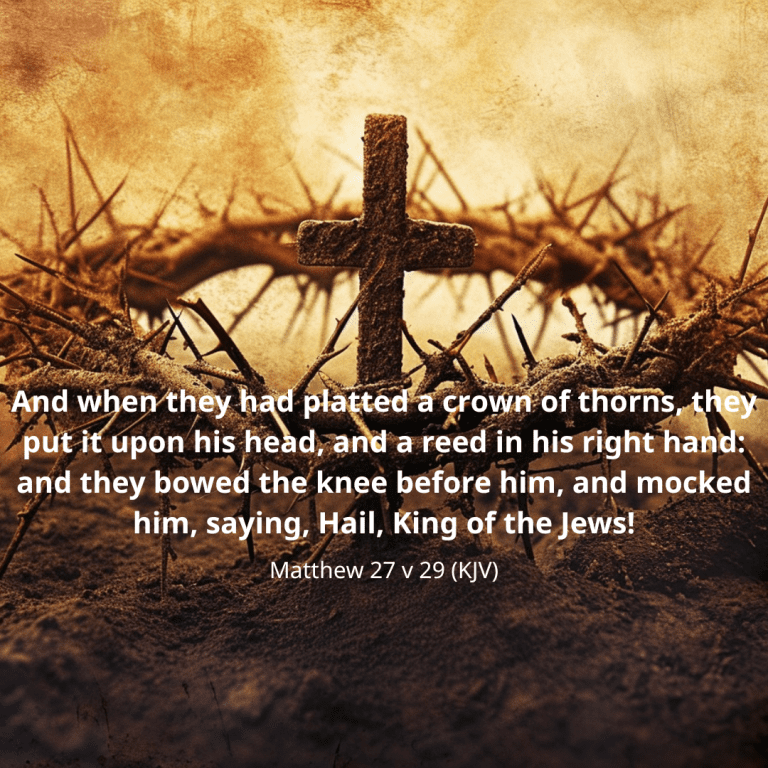Tjifaniso tje pkhwizi yakamila
(Matewu 18:12-14)1 Bakhethisi ne batjinyi bakabe besedzela bose panli kun'hwilila. 2 Koga Bafarasi ne badiyi be nlayo bakang'ong'ola beti, “Nlume iwoyu unoamutjila batjinyi, kakale kaja nabo.” 3 Ndizo Jesu kababudza tjifaniso, eti:
4 “Ndiupi nlume pakati kwenyu, ungati ana pkhwizi dzili zana ling'ompela (100) ebe elashikigwa nge ing'ompela yadzo, kasisiye dzili makumi ali zhanalume ana dzili zhanalume (99) mu shango, kanoshaka pkhwizi iyeyo yalashika kudzina eibona kene? 5 Ngono ha aibona, unoipika nge kushatha. 6 Ha eswika kanyi, unodana bazwalani babe ne babakidzani naye, kabakubunganya kati ku bali, ‘Shathani nami, ngobe pkhwizana yangu yakabe yamila ndaibona.’ 7 Koga saikoko ndomubudza nditi, kowobe ne kushatha kudzimu, ha ntjinyi ng'ompela eshandukila matjinyo awe, kupinda balulwami bali makumi ali zhanalume ana bali zhanalume (99) basingashetane ngokushanduka.”
Tjifaniso tje mari e loso akamila
8 “Kene ndiupi nkadzi una maloso e siliva e mazhuba ali gumi, unoti alashikigwa nge limwe lawo kasibhatidze luvone, katshwayila ng'umba, kalishaka nge njele kudzina elibona kene? 9 Ngono ha alibona unodana bazwalani babe be tjikadzi ne babakidzani naye, ebakubunganya eti ku bali, ‘Shathani nami, ngobe loso langu le siliva lakabe lamila ndalibona.’ 10 Koga sa ikoko, ndomubudza nditi, batumwa be Ndzimu banoshatha ha ntjinyi nng'ompela eshandukila matjinyo awe.”
Tjifaniso tje bakololo bakamila
11 Jesu kapapha kati, “Kwakabe kuna mmwe nlume ana bakololo bali babili. 12 Ntjetjana kati kuna tate babe, ‘Tate, mundipeni langu gobe mu thundu yenyu lakalingisana nami.’ Ndizo tate babo bakabakobanya thundu yabo. 13 Shule kwe mazhuba mashomanana, nkololo ntjetjana kakubunganya thundu iye yose katola gwendo, kayenda ku shango ikule kule, ngono ikoko kazanisa fumwa iye mu butjilo gusingashathise. 14 Ndizo kati azanisa kose kwaakabe anako, kukabe ne bhamba gulu mu shango iyeyo, katangisa kudziyila. 15 Ngono wakamilika kazwiyisa ku mmwe nlume we shango iyeyo, wakantumila ku nnda uwe kunopa hwotji dzidze zojiwa. 16 Kayemula kuja zojiwa zwinojiwa ne hwotji, koga akuna wakampa tjimwe. 17 Koga kati ekumbula kati, ‘Bangana balanda ba tate bangu banoja zojiwa zwikasala, koga imi pano ndofa nge zhala! 18 Ndowomilika ayenda kuna tate bangu, ngono ati ku bali, Tate, ndakatjinyila kudzimu kose namwi. 19 Andizotjafanila dang'wa nkololo wenyu mundibhate se mmwe we bashingi benyu.’ 20 Ndizo kamilika kayenda kuna tate babe.
“Koga kukati atji thambo, tate babe bakambona, ngono bakanhwila ngoni kwazo. Bakatizhilila nkololo wabo, bakan'gumbatila bakamputa. 21 Nkololo kati kuna tate babe, ‘Tate, ndakatjinyila kudzimu kose namwi. Andizotjafanila kudang'wa nkololo wenyu.’ 22 Koga tate babe bakati ku bashingi babo ‘Libilidzani! Zhisani tjiambalo tjakanaka kupinda zose mun'ambadze itjo. Mun'ambadze ring'i ne khwebana. 23 Zhisani gondolo lakakola mulibhaye. Ngatijeni tishathe. 24 Ngobe nkololo wangu iwoyu, wakabe afa koga unotjila kakale, wakabe amila koga wabong'wa.’ Ndizo bakatangisa nzano.
25 “Nge tjibaka itjetjo nkololo hwola wakabe ali ku minda. Kati ezha pejo ne nzi, kahwa kumbiwa kuzang'wa. 26 Ndizo kadana mmwe we balanda kambhuzwa kuti koshingikalani. 27 Ngono nlanda kan'dabila eti, ‘Nnung'una uwo wabuya, ngono tate babo mbhayila gondolo lakakola, ngobe wabuya etjila kakale ezwihwa.’
28 “Nkuluwe kagwadzamoyo kalamba ngina mu nzi, ndizo tate babe bakabhuda bakanonteta. 29 Koga kadabila tate babe eti, ‘Lingani! Makole wose iyawa ndakabe ndimushingila kakale andithu atongo tjuluka milayo yenyu. Koga amuthu mukatongo ndipa kene tjili tjibudzana kuti ndithamile bakwinya bangu zojiwa. 30 Koga nkololo wenyu iwoyu wakazanisa thundu yenyu nge fukula dzinozwitengesa unoti eswika mu nzi mukambulayila gondolo lakakola!’ 31 Tate babe bakadabila beti, ‘Nkololo wangu, iwe unami misi yose, na zose zwandinazo nge zwizo. 32 Ndizo kuzana ne kushatha kofanila, ngobe nnung'una uwo iwoyu, wakabe afa koga wotjila kakale, wakabe amila koga wabong'wa.’ ”
The Lost Sheep
(Matthew 18.12-14)1 One day when many tax collectors and other outcasts came to listen to Jesus, 2 the Pharisees and the teachers of the Law started grumbling, “This man welcomes outcasts and even eats with them!” 3 So Jesus told them this parable:
4 “Suppose one of you has a hundred sheep and loses one of them—what do you do? You leave the other ninety-nine sheep in the pasture and go looking for the one that got lost until you find it. 5 When you find it, you are so happy that you put it on your shoulders 6 and carry it back home. Then you call your friends and neighbors together and say to them, ‘I am so happy I found my lost sheep. Let us celebrate!’ 7 In the same way, I tell you, there will be more joy in heaven over one sinner who repents than over ninety-nine respectable people who do not need to repent.
The Lost Coin
8 “Or suppose a woman who has ten silver coins loses one of them—what does she do? She lights a lamp, sweeps her house, and looks carefully everywhere until she finds it. 9 When she finds it, she calls her friends and neighbors together, and says to them, ‘I am so happy I found the coin I lost. Let us celebrate!’ 10 In the same way, I tell you, the angels of God rejoice over one sinner who repents.”
The Lost Son
11 Jesus went on to say, “There was once a man who had two sons. 12 The younger one said to him, ‘Father, give me my share of the property now.’ So the man divided his property between his two sons. 13 After a few days the younger son sold his part of the property and left home with the money. He went to a country far away, where he wasted his money in reckless living. 14 He spent everything he had. Then a severe famine spread over that country, and he was left without a thing. 15 So he went to work for one of the citizens of that country, who sent him out to his farm to take care of the pigs. 16 He wished he could fill himself with the bean pods the pigs ate, but no one gave him anything to eat. 17 At last he came to his senses and said, ‘All my father's hired workers have more than they can eat, and here I am about to starve! 18 I will get up and go to my father and say, “Father, I have sinned against God and against you. 19 I am no longer fit to be called your son; treat me as one of your hired workers.”’ 20 So he got up and started back to his father.
“He was still a long way from home when his father saw him; his heart was filled with pity, and he ran, threw his arms around his son, and kissed him. 21 ‘Father,’ the son said, ‘I have sinned against God and against you. I am no longer fit to be called your son.’ 22 But the father called to his servants. ‘Hurry!’ he said. ‘Bring the best robe and put it on him. Put a ring on his finger and shoes on his feet. 23 Then go and get the prize calf and kill it, and let us celebrate with a feast! 24 For this son of mine was dead, but now he is alive; he was lost, but now he has been found.’ And so the feasting began.
25 “In the meantime the older son was out in the field. On his way back, when he came close to the house, he heard the music and dancing. 26 So he called one of the servants and asked him, ‘What's going on?’ 27 ‘Your brother has come back home,’ the servant answered, ‘and your father has killed the prize calf, because he got him back safe and sound.’ 28 The older brother was so angry that he would not go into the house; so his father came out and begged him to come in. 29 But he spoke back to his father, ‘Look, all these years I have worked for you like a slave, and I have never disobeyed your orders. What have you given me? Not even a goat for me to have a feast with my friends! 30 But this son of yours wasted all your property on prostitutes, and when he comes back home, you kill the prize calf for him!’ 31 ‘My son,’ the father answered, ‘you are always here with me, and everything I have is yours. 32 But we had to celebrate and be happy, because your brother was dead, but now he is alive; he was lost, but now he has been found.’”

